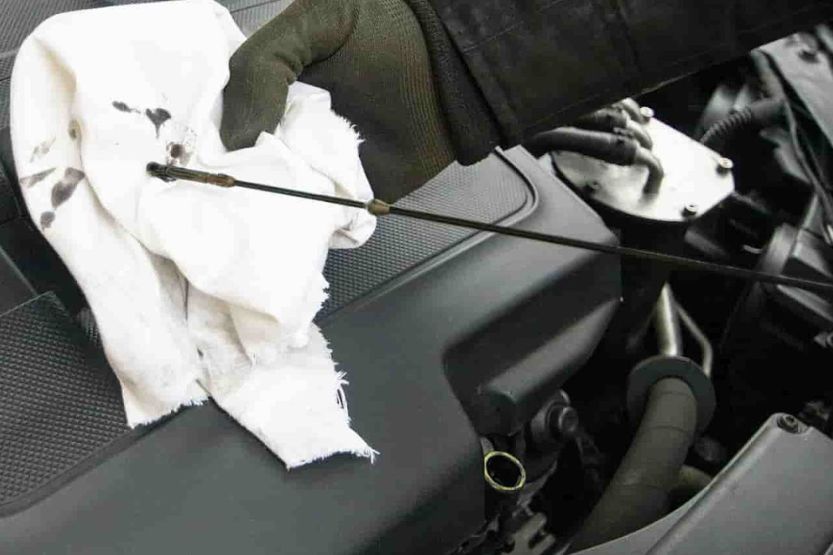When it comes to car maintenance, there are many questions that people have. One of the most common questions is whether or not to tip for an oil change.
While tipping is a common practice in many service industries, it can be unclear whether or not it is expected in the garage.
Tipping for an oil change is not expected or required. Mechanics are paid a decent wage, and doing a good job is already included in the price of the oil change.
However, if you feel that your mechanic went above and beyond, or if you received exceptional service, it is always a nice gesture to leave a tip.
It’s important to note that the cost of an oil change can vary depending on the type of oil used.
Synthetic oil changes can cost more than conventional oil changes, and the price can range from $45 to $125 or more. However, regardless of the type of oil used, tipping is not expected, but it is always appreciated. Read on to learn more!
Why Tipping is Important

While tipping is not mandatory, it is a way to show appreciation for good service. Tipping your mechanic for an oil change is a great way to show your gratitude for their hard work. Here are some benefits of tipping:
Benefits of Tipping
1. Encourages Good Service: Tipping can motivate your mechanic to provide excellent service. It shows them that their hard work is appreciated and can encourage them to go above and beyond for their customers.
2. Builds Relationships: Tipping can help build a good relationship between you and your mechanic. A good relationship can lead to better service in the future, and your mechanic may be more likely to give you a discount or a free service.
3. Boosts Morale: Tipping can boost your mechanic’s morale and make them feel valued. It can also make them feel more motivated to work harder and provide better service.
4. Shows Gratitude: Tipping is a great way to show your mechanic that you appreciate their hard work. It can make them feel good about themselves and their job, and it can also make you feel good about supporting someone who provides excellent service.
5. Helps with Wages: Tipping can also help your mechanic earn a better wage. While they may not rely on tips, it can be a nice bonus for them and can help them make ends meet.
Factors to Consider
When it comes to tipping for an oil change, there are several factors to consider. The type of oil change, quality of service, and length of time spent on the service are all important factors to take into account.
Type of Oil Change
The type of oil change can vary greatly depending on the car and its needs.
Conventional oil changes are the most common and affordable option, but synthetic oil changes are becoming increasingly popular due to their longevity and ability to improve engine performance. If a car requires synthetic oil, the cost of the oil change will likely be higher.
Quality of Service
The quality of service provided by the mechanic is another important factor to consider. A good mechanic will not only change the oil but also check the oil level, inspect the engine and oil filter, and use high-quality motor oil.
If the mechanic provides exceptional service and goes above and beyond, it may be appropriate to tip them.
Length of Time
The length of time spent on the oil change can also impact whether or not to tip. If the mechanic completes the job quickly and efficiently, it may not be necessary to tip.
However, if the job takes longer than expected or if the mechanic encounters unexpected issues that require additional time and effort, it may be appropriate to tip for their hard work.
Overall, tipping for an oil change is a personal choice and should be based on the quality of service provided. If the mechanic provides exceptional service and goes above and beyond, it may be appropriate to tip them.
However, if the service is average or below average, tipping may not be necessary. As an expert in the field of cars and car repair, I can confidently say that you don’t really need to tip for an oil change. It is up to you.
How Much to Tip
When it comes to tipping for an oil change, the amount you should tip is a matter of personal discretion. However, there are some industry standards that you might want to consider.
Industry Standards
According to Bankrate, the standard tip for an oil change is $5 to $10. However, it’s important to note that oil change tipping is not required for this service; especially if you found the oil change to be very expensive.
While tipping for an oil change is not customary, it’s always appreciated. Mechanics work hard to ensure that your vehicle is running smoothly, and a small tip can go a long way in showing your appreciation.
Personal Discretion
Ultimately, the amount you tip for an oil change is up to you. If you feel that the service was exceptional, you may want to consider a higher tip. On the other hand, if you feel that the service was subpar, you may not want to tip at all.
It’s important to consider your budget when deciding how much to tip. If you’re on a tight budget, a smaller tip or no tip at all is perfectly acceptable.
Overall, tipping for an oil change is a personal decision. While there are some industry standards, the amount you tip should ultimately depend on the quality of service you received and your own budget.
When Not to Tip

While tipping for an oil change is a personal choice, there are some situations where tipping may not be necessary or appropriate. Here are a few instances when it may be best to skip the tip:
- Low on cash: If you don’t have enough money on you, it’s not necessary to tip. It’s better to save your money for other expenses.
- No-tipping policy: Some shops may have a no-tipping policy in place, in which case it’s best to respect their rules and not offer a tip.
- Unsatisfactory service: If the service was not up to par or if the mechanic was unprofessional, it’s not necessary to leave a tip.
It’s important to remember that tipping is a way to show appreciation for a job well done. If the service was subpar, there’s no obligation to leave a tip.
Additionally, if you’re on a tight budget, it’s perfectly acceptable to skip the tip. Mechanics typically earn a fair wage and don’t rely on tips to make a living.
Ultimately, the decision to tip or not to tip is up to the individual. It’s important to consider the quality of service, personal budget, and any shop policies before making a decision. My intention is to provide valuable and honest information for my readers.
Final Thoughts
While tipping for an oil change is not expected, it is always appreciated. Mechanics work hard to ensure that your vehicle is running smoothly and safely, and a small gesture of thanks can go a long way.
It is important to keep in mind that tipping is a personal choice and should be based on the quality of service provided. If the mechanic went above and beyond to ensure that your vehicle was in top condition, then a larger tip may be appropriate.
However, if the service was simply satisfactory, then a smaller tip or no tip at all may be acceptable.
When deciding on a tip amount, it is helpful to consider the cost of the oil change and the amount of time it took to complete the service.
According to Green in Black & White, a tip of 10-20% of the sale value of the goods or services is standard in the US. For an oil change, this would equate to somewhere in the region of $5 – $15.
Ultimately, the decision to tip or not to tip is up to the individual. However, it is important to remember that a small show of appreciation can make a big difference in the lives of those who work hard to keep our vehicles running smoothly.






![How to Read a Dipstick [Easy Steps and Tips] how to read a dipstick](https://roadsumo.com/wp-content/uploads/2022/01/how-to-read-a-dipstick-150x150.jpg)


